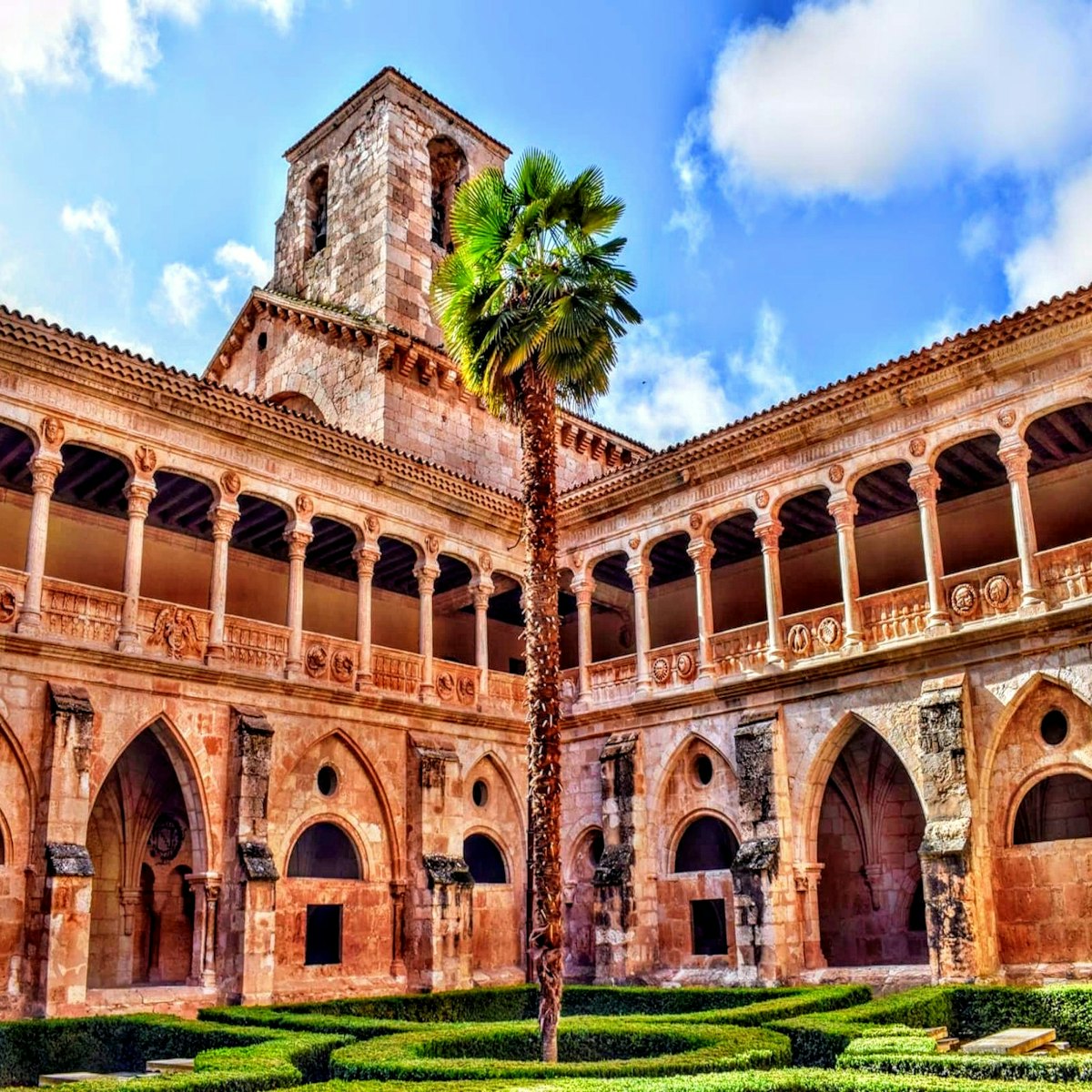Rising up from the heart of the old town is the city’s centuries-in-the-making masterpiece – the Cathedral of Santa María. Begun as a Romanesque structure in 1130, work continued for four centuries as the church was expanded and adorned. The largely Gothic result is laced with elements of other styles, from plateresque through to Renaissance to Mudéjar. The church was heavily damaged during the civil war (note the pockmarks from bullets and shells in the bell tower), but was subsequently rebuilt.
The dark interior has a broodingly ancient feel and some fine stained glass, plus an impressive 15th-century altarpiece. Nearby, the Capilla Mayor is home of the reclining marble statue of Don Martín Vázquez de Arce (the statue is named El Doncel), who died fighting the Muslims in the final stages of the Reconquista.
Particularly beautiful is the jaw-dropping Rennaisance Sacristía de las Cabezas, with a ceiling adorned with hundreds of heads sculpted by Covarrubias. The Capilla del Espíritu Santo's doorway combines plateresque, Mudéjar and Gothic styles; inside is a remarkable dome and an Anunciación, one of the last works of El Greco.
An audioguide (English available) gives insightful commentary on the cathedral. Admission also gives access to the Museo Diocesano across from the cathedral's entrance.




